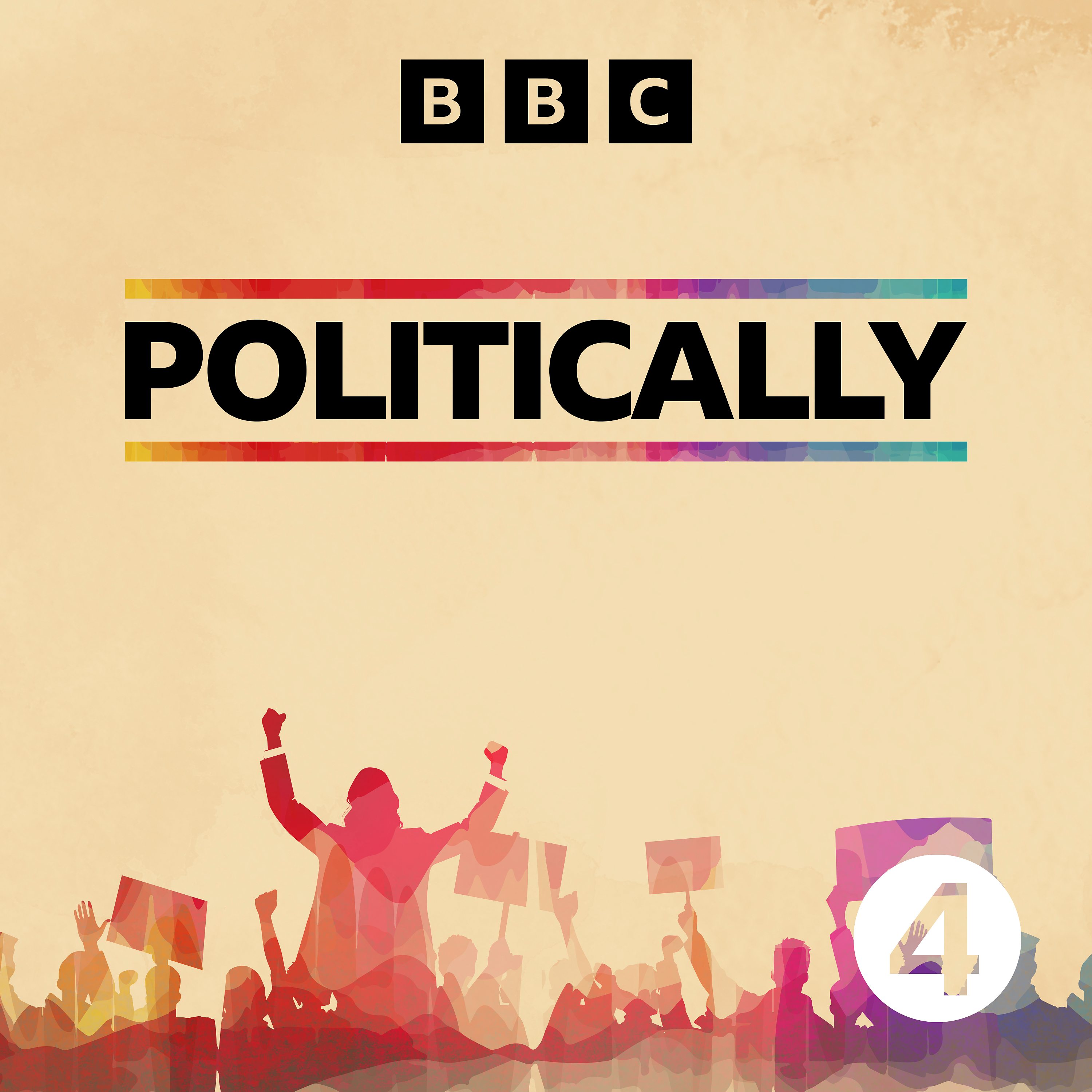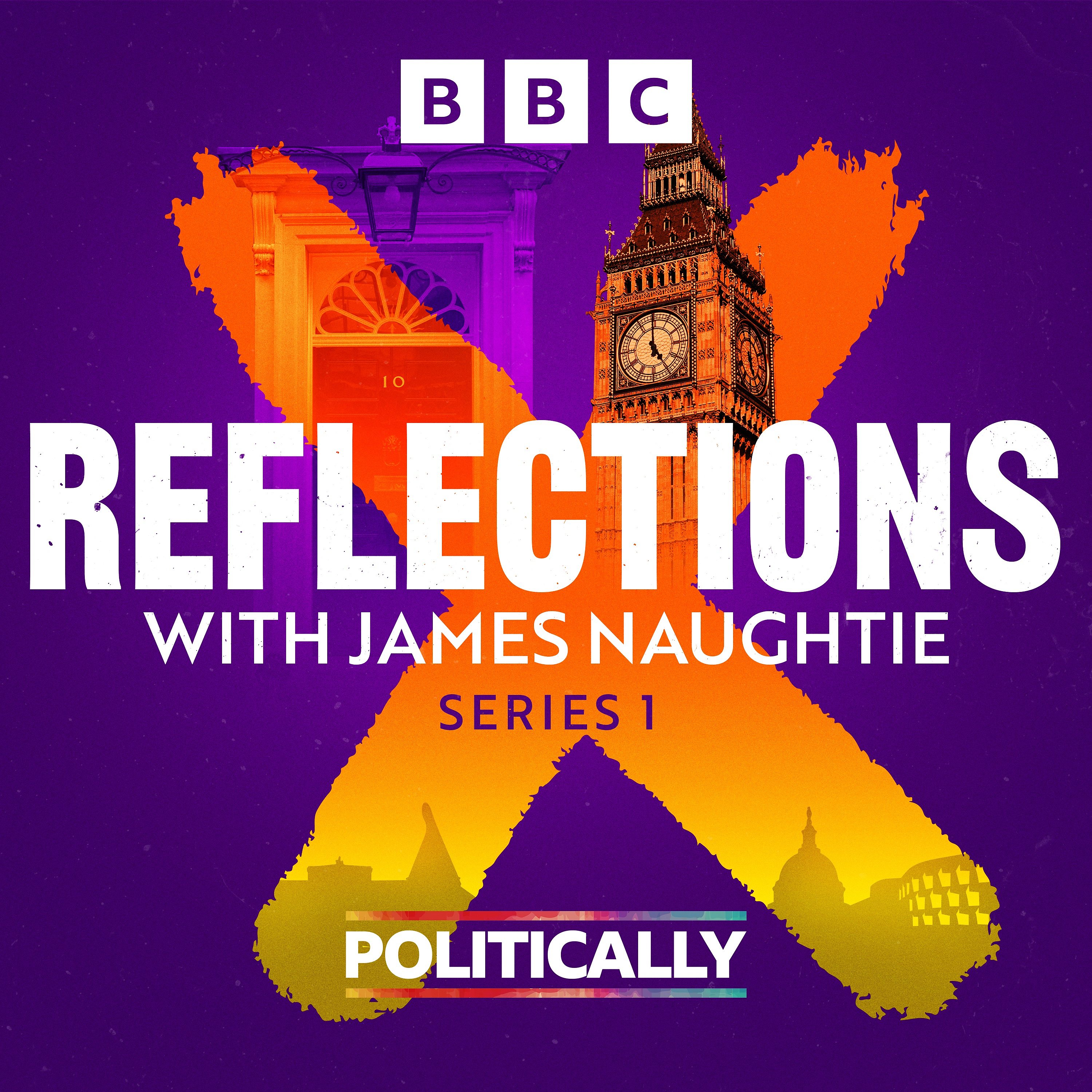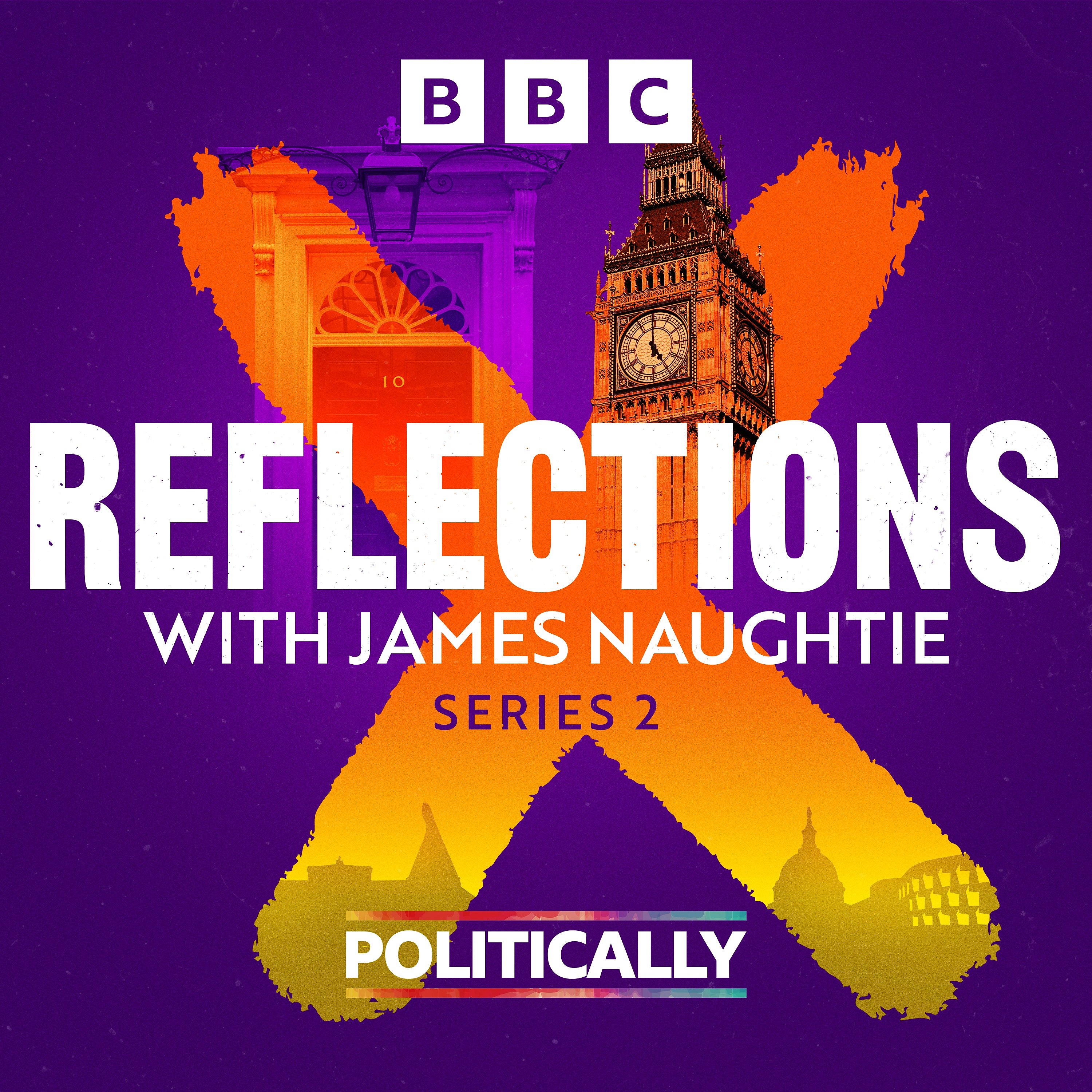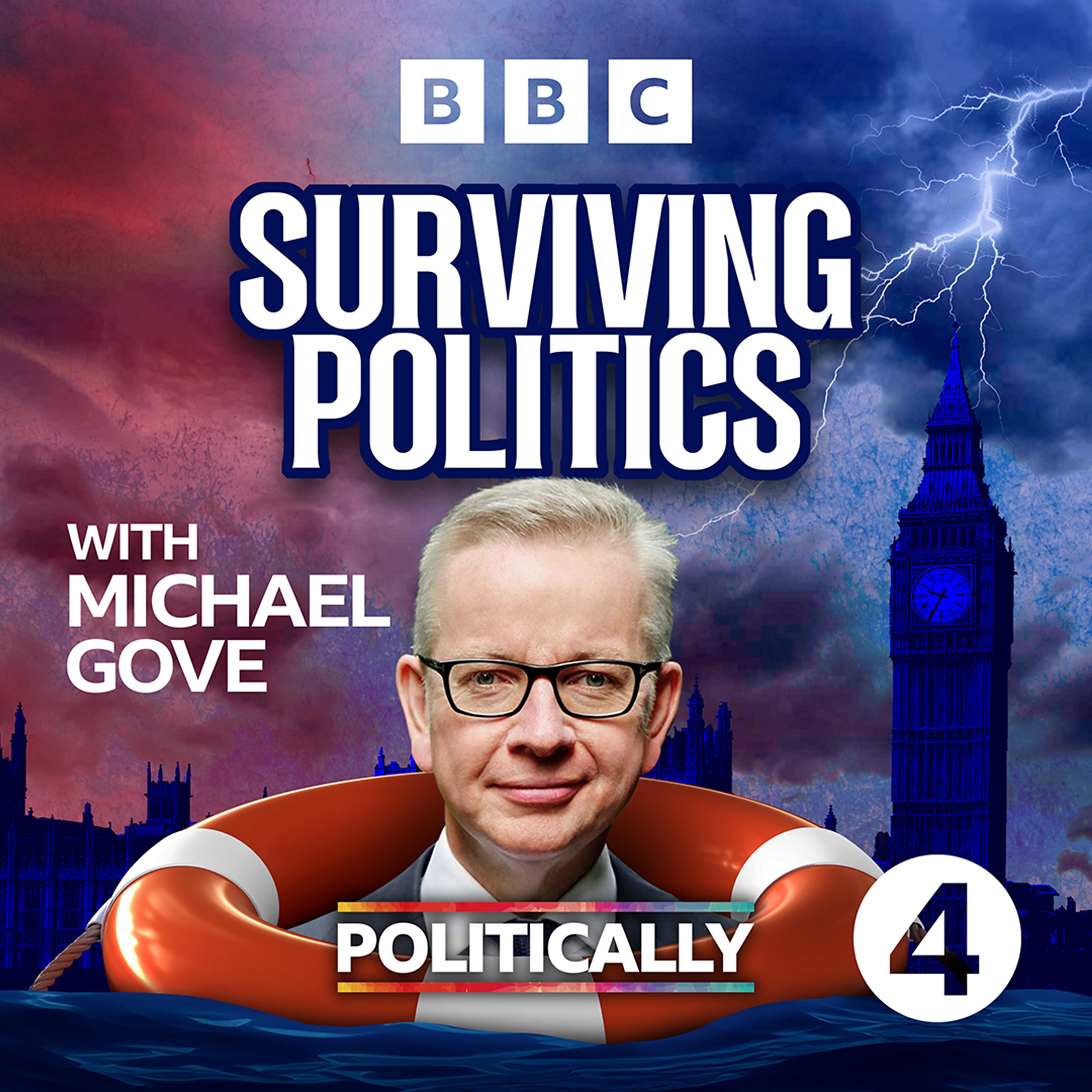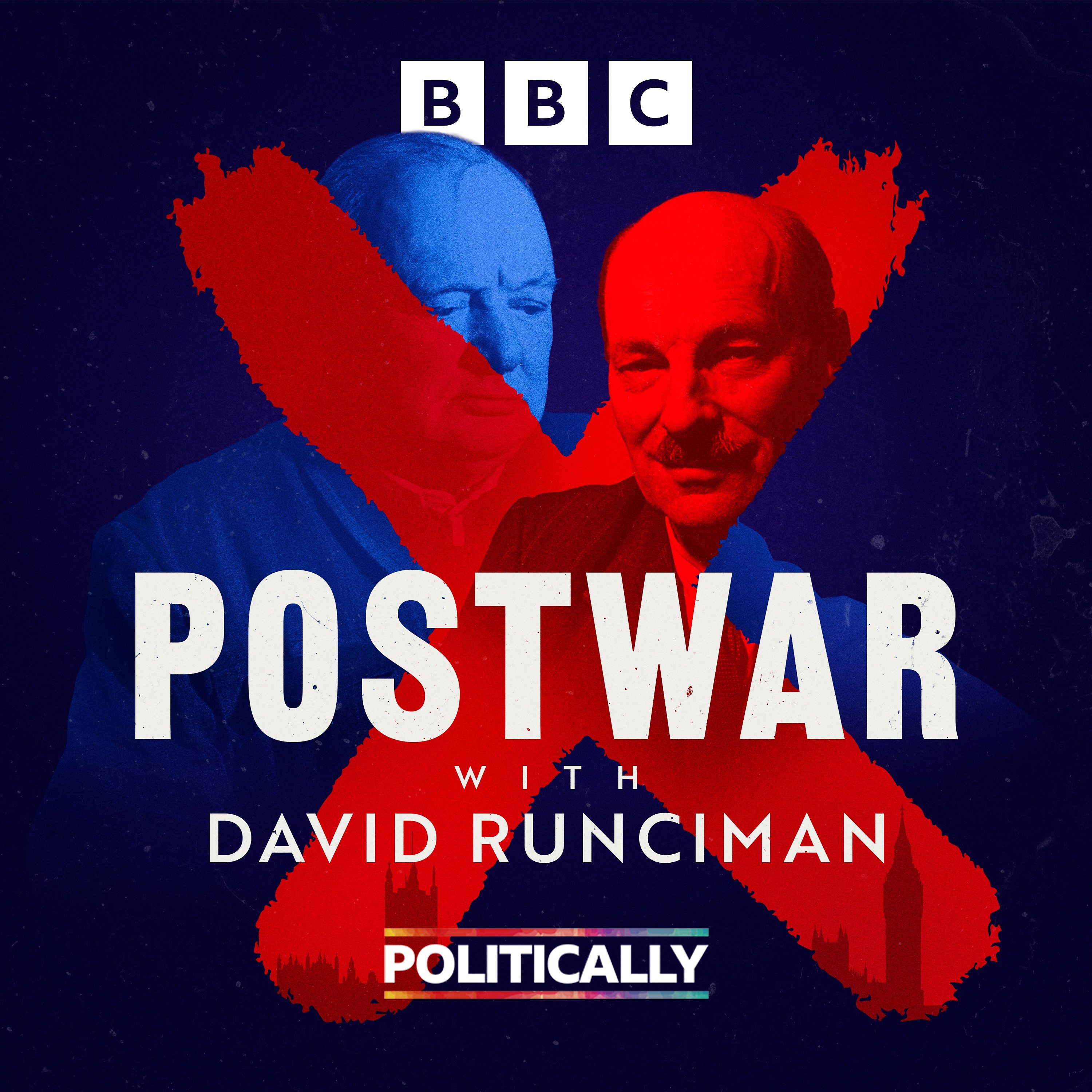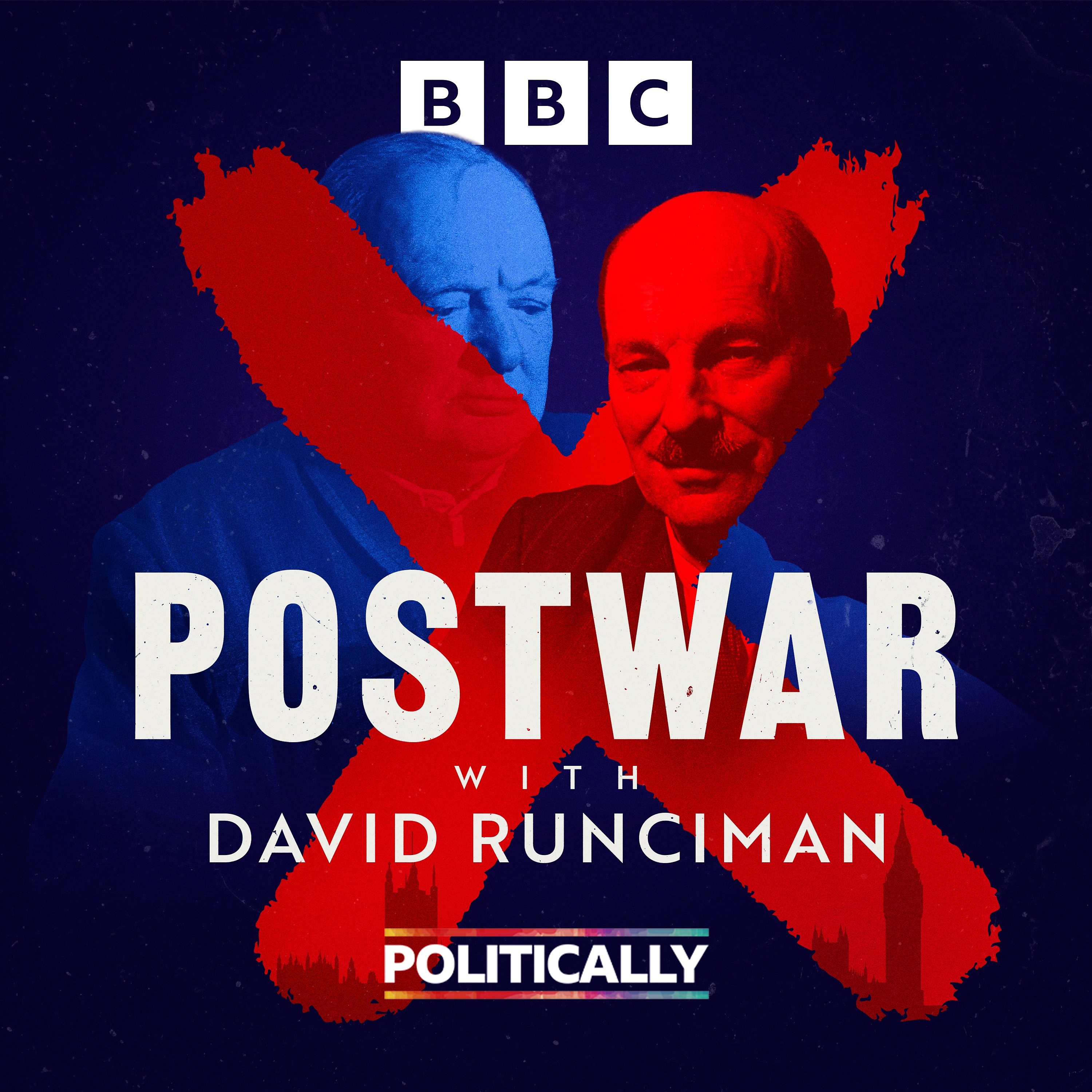Discover Politically
Politically

40 Episodes
Reverse
Welcome to Politically, BBC Radio 4’s home for insightful, inside takes on how politics and power really work.The clips are taken from:Surviving Politics with Michael Gove
Reflections
The former Chancellor and Home Secretary Lord Clarke speaks to James Naughtie about his 50-year career at the top of British politics. They discuss his rows with Margaret Thatcher, his passion for Europe, how the country has changed during his life, and whether he ever regrets not getting the top job.Producer: Daniel Kraemer.
Baroness Amos takes James Naughtie behind the scenes of a career in the foreign office, Tony Blair's government, and the UN, and reflects on how to bring activism to the establishment.
Lord George Robertson talks to James Naughtie his journey from battling with the Scottish National Party as a Labour MP, to sitting across the table from Vladimir Putin as Secretary General of NATO.Producer: Daniel Kraemer
Lord Norman Fowler talks to James Naughtie about battling to convince Margaret Thatcher on the importance of tackling the Aids crisis in the 80s and the failure of successive governments to reform the House of Lords.Producer: Daniel Kraemer
In the first episode of a new series of Reflections, James Naughtie talks to former Conservative Cabinet Minister Michael Portillo about his zigzag career in politics. From his early days working for Margaret Thatcher, to his time as Defence Secretary, dramatic loss in what is still called the 'Portillo moment', and bid for the Conservative Party leadership, Portillo reflects candidly on his strengths and weaknesses, and what kind of a leader he might have made.Producer: Daniel Kraemer.
Arlene Foster talks to James Naughtie about her career, which lead from a farm in Fermanagh to being First Minister of Northern Ireland, and holding the fate of Brexit in her hands.Producer: Daniel Kraemer.
The former Home Secretary reflects with Jim Naughtie on life at the heart of the Labour Party.What was it like to be at Neil Kinnock's side during Labour's wilderness years, running the Home Office on 7/7, and being sacked by Tony Blair? Producers: Daniel Kraemer and Giles Edwards
The former President of Ireland and UN human rights chief sits down with Jim Naughtie in Dublin to reflect on her career and why she remains a "prisoner of hope"Producers: Daniel Kraemer and Giles Edwards
19 years as a member of parliament, 6 cabinet positions, 5 general elections and serving under 4 prime ministers. During his political career, Michael Gove pretty much saw and did it all. As he says himself, no-one in politics is a conscript. He and others are volunteers who willingly choose their fate. But office can and does take its toll and in this five part series, Michael talks candidly with politicians from different parties about the strengths and skills needed to survive when things get tough.Producer: Ben Carter
Editor: Clare Fordham
Sound recordists: Jack Graysmark and Hannah Montgomery
Mixed by James Beard
Production co-ordinators: Janet Staples, Maria Ogundele and Sabine SchereckListen to all episodes from Monday 21 October 2024 on BBC Sounds.
Michael Gove talks to Margaret Hodge about the importance of working with other parties.19 years as a member of parliament, 6 cabinet positions, 5 general elections and serving under 4 prime ministers. During his political career, Michael Gove pretty much saw and did it all. As he says himself, no-one in politics is a conscript. He and others are volunteers who willingly choose their fate. But office can and does take its toll and in this five part series, Michael talks candidly with politicians from different parties about the strengths and skills needed to survive when things get tough.Producer: Ben Carter
Editor: Clare Fordham
Sound recordists: Jack Graysmark and Hannah Montgomery
Mixed by James Beard
Production co-ordinators: Janet Staples, Maria Ogundele and Sabine Schereck
Michael Gove talks to Peter Mandelson about the challenge of managing unpopularity.19 years as a member of parliament, 6 cabinet positions, 5 general elections and serving under 4 prime ministers. During his political career, Michael Gove pretty much saw and did it all. As he says himself, no-one in politics is a conscript. He and others are volunteers who willingly choose their fate. But office can and does take its toll and in this five part series, Michael talks candidly with politicians from different parties about the strengths and skills needed to survive when things get tough.Producer: Ben Carter
Editor: Clare Fordham
Sound recordists: Jack Graysmark and Hannah Montgomery
Mixed by James Beard
Production co-ordinators: Janet Staples, Maria Ogundele and Sabine Schereck
Michael Gove talks to Amber Rudd about how and why she chose to take stands of principle.19 years as a member of parliament, 6 cabinet positions, 5 general elections and serving under 4 prime ministers. During his political career, Michael Gove pretty much saw and did it all. As he says himself, no-one in politics is a conscript. He and others are volunteers who willingly choose their fate. But office can and does take its toll and in this five part series, Michael talks candidly with politicians from different parties about the strengths and skills needed to survive when things get tough.Producer: Ben Carter
Editor: Clare Fordham
Sound recordists: Jack Graysmark and Hannah Montgomery
Mixed by James Beard
Production co-ordinators: Janet Staples, Maria Ogundele and Sabine Schereck
Michael Gove talks to Arlene Foster about the challenge of managing schisms in her party.19 years as a member of parliament, 6 cabinet positions, 5 general elections and serving under 4 prime ministers. During his political career, Michael Gove pretty much saw and did it all. As he says himself, no-one in politics is a conscript. He and others are volunteers who willingly choose their fate. But office can and does take its toll and in this five part series, Michael talks candidly with politicians from different parties about the strengths and skills needed to survive when things get tough.Producer: Ben Carter
Editor: Clare Fordham
Sound recordists: Jack Graysmark and Hannah Montgomery
Mixed by James Beard
Production co-ordinators: Janet Staples, Maria Ogundele and Sabine Schereck
Michael talks to Humza Yousaf about working out who you can trust and managing allies.19 years as a member of parliament, 6 cabinet positions, 5 general elections and serving under 4 prime ministers. During his political career, Michael Gove pretty much saw and did it all. As he says himself, no-one in politics is a conscript. He and others are volunteers who willingly choose their fate. But office can and does take its toll and in this five part series, Michael talks candidly with politicians from different parties about the strengths and skills needed to survive when things get tough.Producer: Ben Carter
Editor: Clare Fordham
Sound recordists: Jack Graysmark and Hannah Montgomery
Mixed by James Beard
Production co-ordinators: Janet Staples, Maria Ogundele and Sabine Schereck
David Runciman tells the story of one of the biggest shocks in British parliamentary history: the 1945 election and the dawn of a new age. Listen on BBC Sounds from Monday 9 Jun 2025
David Runciman tells the story of the 1945 election and the dawn of a new age.The 1945 general election was one of the biggest shocks in British parliamentary history: a decisive rejection of Winston Churchill and his leadership. The election of Clement Attlee's Labour government in a landslide marked a break with the past and signalled a strong desire on the part of the British people for something new. But it was also a product of Britain's wartime experiences and revealed the many ways in which the country had already changed. The years that followed -- the postwar years -- would bring about bold and radical reform, the building of a new nation, a 'New Jerusalem'. The Britain of the National Health Service and the welfare state, of nationalised industry and the so-called 'postwar consensus' -- all were ushered into place with this election. This is the Britain that most have us have grown up in and which still shapes an idea of who we think we are.On 8th May 1945 -- VE Day -- Winston Churchill was triumphant and vindicated. Less than twelve weeks later he was thrown out of office in a crushing electoral defeat. Why did the man who won the war -- the hero of the hour and a hero for the ages -- find himself so decisively rejected by the electorate?Featuring historian David Kynaston.
David Runciman tells the story of the 1945 election and the dawn of a new age.The 1945 general election was one of the biggest shocks in British parliamentary history: a decisive rejection of Winston Churchill and his leadership. The election of Clement Attlee's Labour government in a landslide marked a break with the past and signalled a strong desire on the part of the British people for something new. But it was also a product of Britain's wartime experiences and revealed the many ways in which the country had already changed. The years that followed -- the postwar years -- would bring about bold and radical reform, the building of a new nation, a 'New Jerusalem'. The Britain of the National Health Service and the welfare state, of nationalised industry and the so-called 'postwar consensus' -- all were ushered into place with this election. This is the Britain that most have us have grown up in and which still shapes an idea of who we think we are.Winston Churchill and Clement Attlee had worked closely together for the entire duration of the wartime coalition government, as Prime Minister and Deputy Prime Minister. With the war in Europe at an end, these close colleagues became fierce election rivals.Featuring historian John Bew, author of Citizen Clem: A Biography of Attlee.
David Runciman tells the story of the 1945 election and the dawn of a new age.The 1945 general election was one of the biggest shocks in British parliamentary history: a decisive rejection of Winston Churchill and his leadership. The election of Clement Attlee's Labour government in a landslide marked a break with the past and signalled a strong desire on the part of the British people for something new. But it was also a product of Britain's wartime experiences and revealed the many ways in which the country had already changed. The years that followed -- the postwar years -- would bring about bold and radical reform, the building of a new nation, a 'New Jerusalem'. The Britain of the National Health Service and the welfare state, of nationalised industry and the so-called 'postwar consensus' -- all were ushered into place with this election. This is the Britain that most have us have grown up in and which still shapes an idea of who we think we are.The Beveridge Report was a detailed plan for a universal social security system, intended to vanquish what its author William Beveridge envisioned as Five Evil Giants: Want, Disease, Ignorance, Squalor and Idleness.Published in November 1942, it became a huge popular success, representing a hope for when the war was over and also an answer to the question of what we were fighting for. Battling Beveridge's Five Giants underpinned plans for the postwar welfare state. But who could most be trusted to deliver those plans? Featuring historian Lucy Delap.
David Runciman tells the story of the 1945 election and the dawn of a new age.The 1945 general election was one of the biggest shocks in British parliamentary history: a decisive rejection of Winston Churchill and his leadership. The election of Clement Attlee's Labour government in a landslide marked a break with the past and signalled a strong desire on the part of the British people for something new. But it was also a product of Britain's wartime experiences and revealed the many ways in which the country had already changed. The years that followed -- the postwar years -- would bring about bold and radical reform, the building of a new nation, a 'New Jerusalem'. The Britain of the National Health Service and the welfare state, of nationalised industry and the so-called 'postwar consensus' -- all were ushered into place with this election. This is the Britain that most have us have grown up in and which still shapes an idea of who we think we are.On the eve of polling day in 1945, Winston Churchill told a private gathering that he was certain his party would win. "I feel it in my bones," he said. Few would have disagreed. At that time the British public hadn't been asked for their opinion in a general election for nearly ten years. Opinion polls were in their infancy. How could political parties know what voters were thinking?Featuring historian Lucy Delap.


